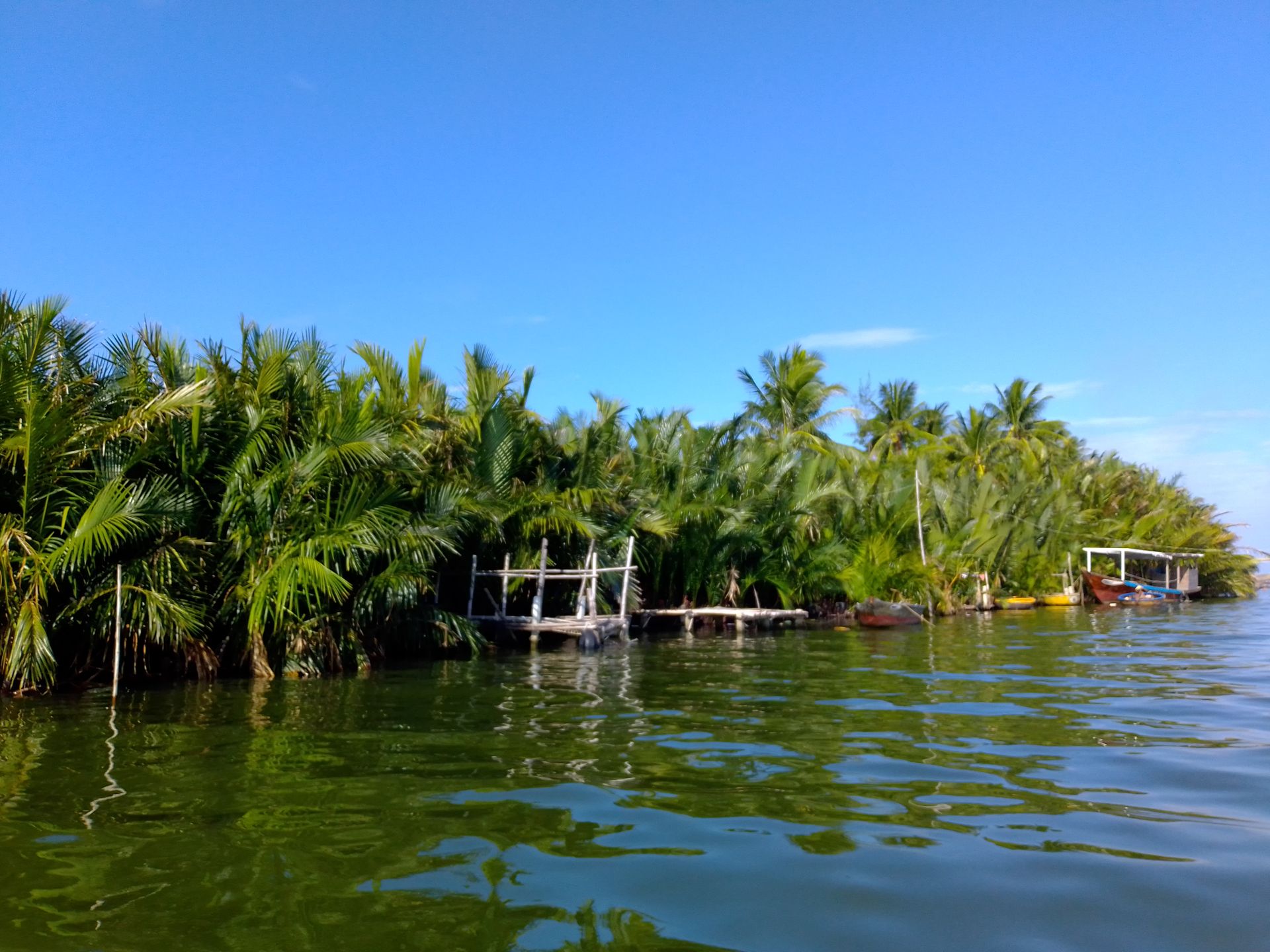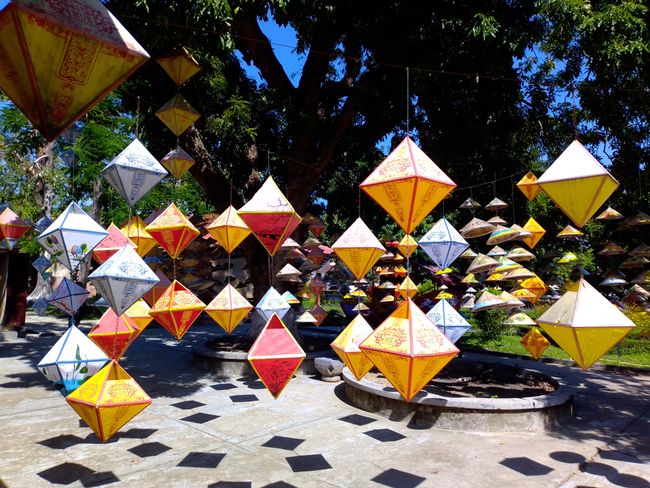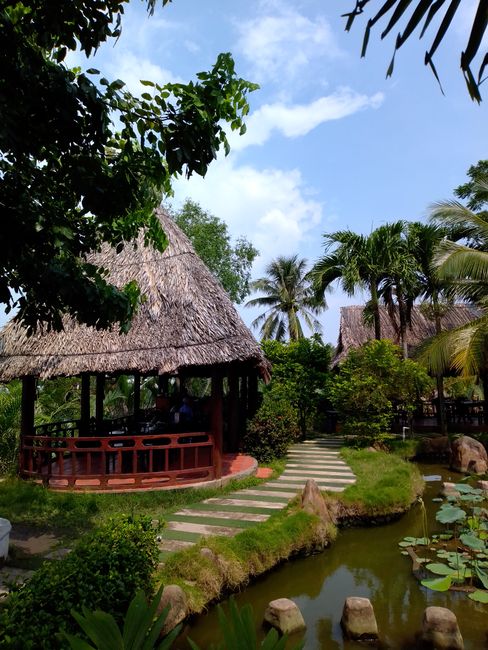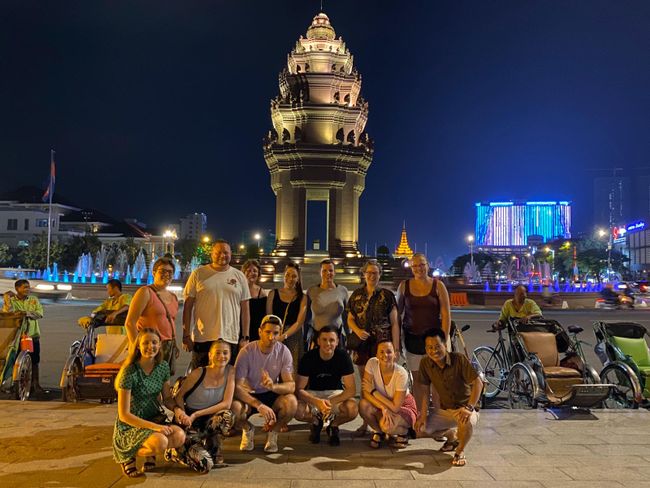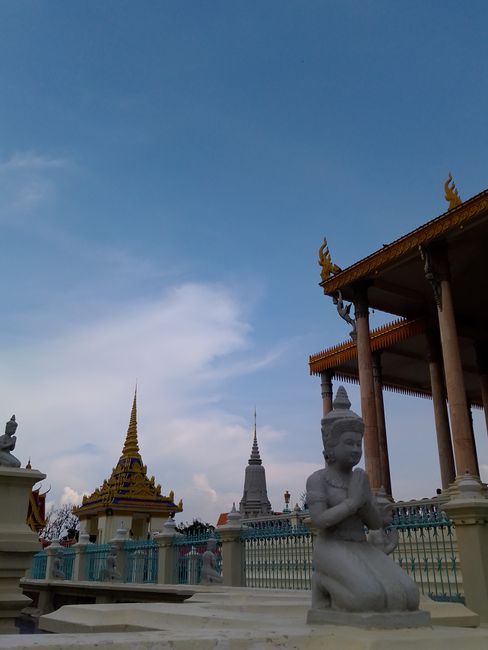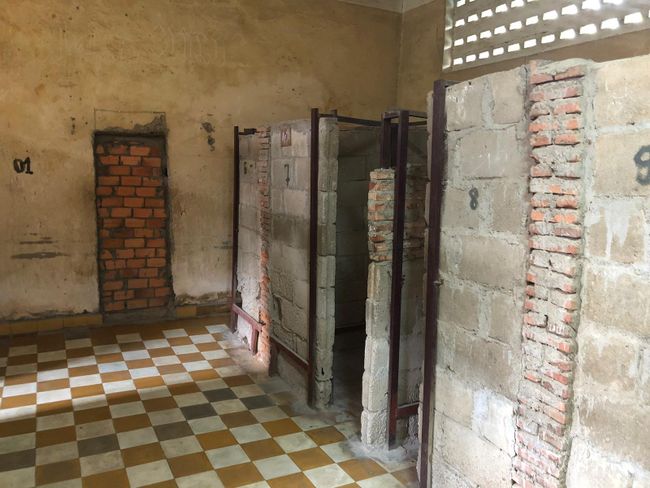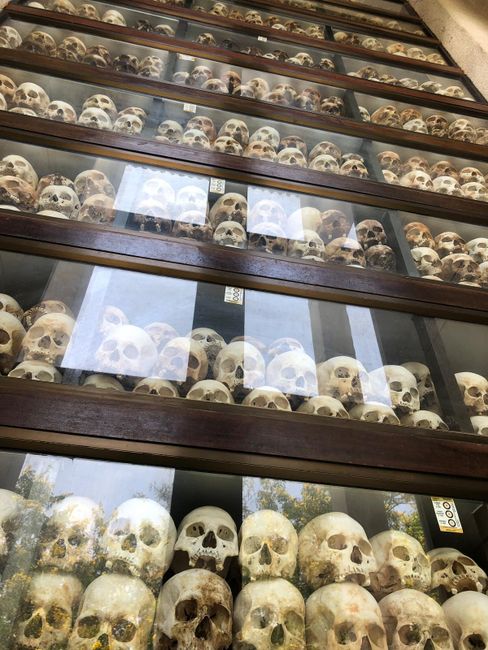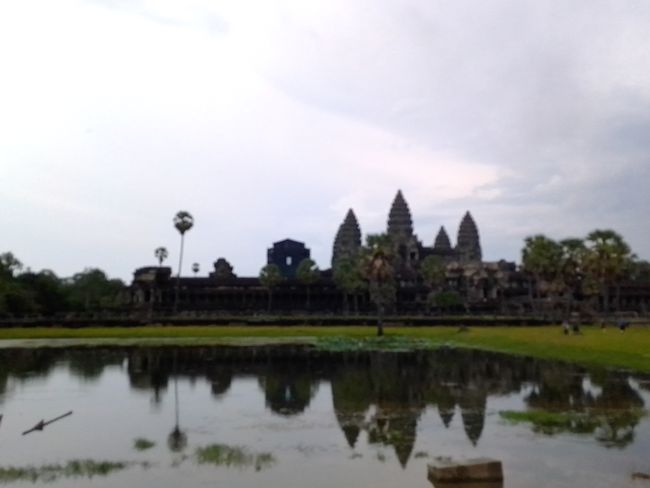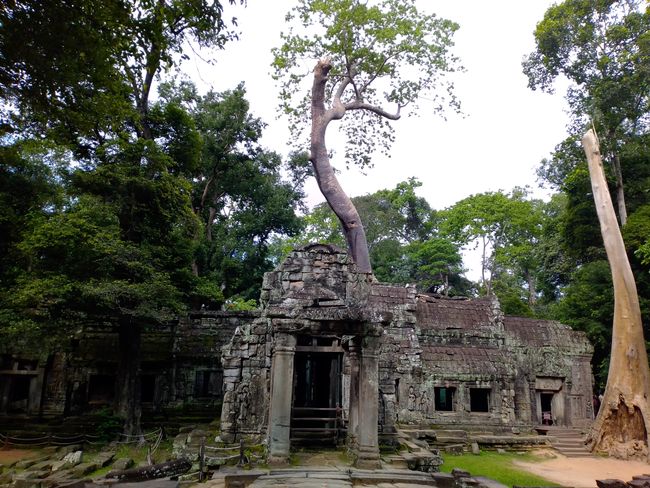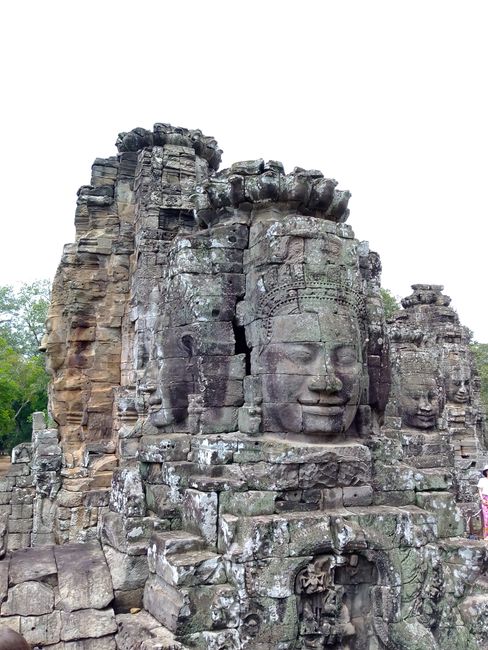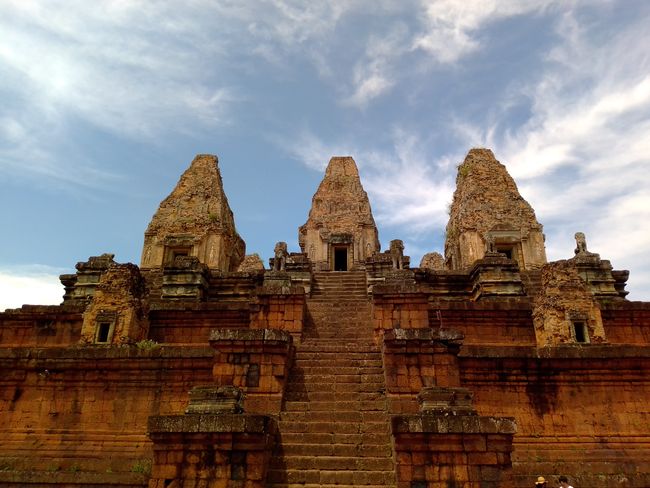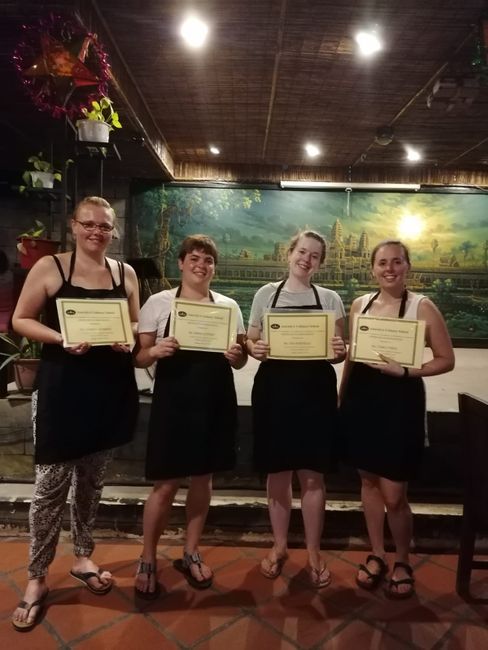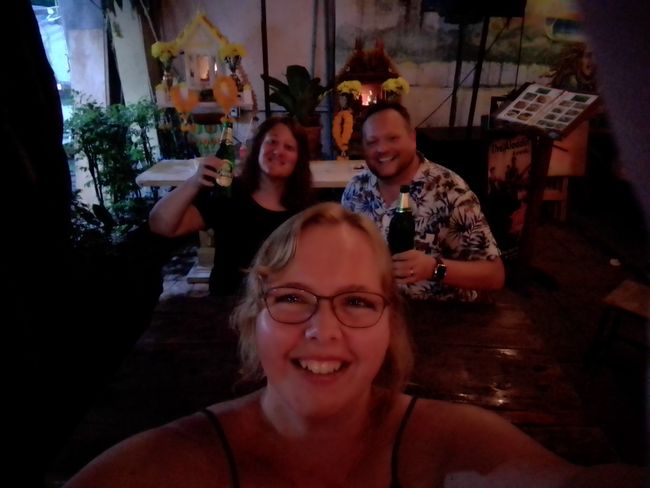Travel through Cambodia
منتشر شده: 09.10.2019
مشترک شدن در خبرنامه
About 10 days ago, after visiting the Mekong Delta - a maze of rivers, islands, rice fields, floating markets and villages - we finally left Vietnam and went to Cambodia with a group.
In the late afternoon, we arrived in the capital city of Phnom Penh. The first highlight was a cyclo ride, where we comfortably sat in a chair attached to a bicycle and were driven through the dense traffic. However, it was not so comfortable for the poor driver, who was about half the size of a western person and had to make an effort to transport us. Additionally, the traffic was so chaotic and chaotic that we had to close our eyes with sweat on our foreheads a few times, hoping that the approaching scooter or car would not run us over. Along the way, we arrived at a nice restaurant and found that drinks were really cheap there and almost every bar had a happy hour until late at night. We took advantage of this the next evening with our new friend Michael from Canada :D what seemed like a great idea during his karaoke performance with his karaoke microphone, turned out to be not such a good idea the morning after on the bus ride to Siem Reap, but oh well... :D
In Phnom Penh, we visited the Killing Fields - a mass grave where the Cambodian population was brutally killed in the most unimaginable way. Babies, children, women, and men were executed and buried with unimaginable brutality. Most of these victims were previously held in a prison in the capital, which we also visited. The population was held and tortured by the Khmer Rouge, a guerrilla movement that controlled the country from 1975 to 1979 and wanted to transform it into a totalitarian state. They expelled almost the entire population from the capital of Phnom Penh and killed nearly one third of the Cambodian population in these 4 years. An incredible genocide that shocked and affected us, especially when we spoke with a survivor from the prison. This time has of course shaped the country and it still suffers from poverty and the memory of the terror. In addition, it was also forbidden to learn a foreign language until 1993. It's incredible that we were sitting in school annoyed by the many vocabulary tests while elsewhere people were persecuted for this privilege... In the afternoon, we had a contrast program: a visit to the Royal Palace. Thanks to the tour guide, we received a lot of information about the life and religion of the emperor, who used to be a ballet dancer in Paris and is still a bachelor at 67 years old, which the tour guide mentioned in almost every sentence...
The next day, as mentioned, we took the bus to Siem Reap, a bit tired and with a queasy stomach. We arrived there in the early evening, quickly had dinner with the group, and went to sleep because we had to get up at 4 am the next morning to see the sunrise at the famous temple of Angkor Wat. Unfortunately, it was raining and the sky was full of clouds, so it only got bright, but we were not able to witness the famous sunrise... Just great, all that stress for nothing... Well, we were accompanied by a cheerful and photo-enthusiastic tour guide who led us through the huge temple complexes from the 12th century. Impressive ruins and a total of 295 temples can be found in the area around Siem Reap. Our second stop was the temple where the movie Tomb Raider was filmed. The characteristic feature of this temple are the many ancient trees growing out of its roofs. The last temple for that day was Bayon, a temple full of smiling faces. A beautiful and well-preserved temple that the motivated tour guide prompted our group to take many photos of :D the next day, a studious and interested rest of the group, including us of course, visited 2 more temple complexes, including a well-preserved crematorium for the former emperors and court residents.
In the afternoon, I attended a cooking class with 3 other group members and, after visiting the market with the cooking teacher, learned how to prepare a delicious mango salad, the typical dish Ckicken Amok, and a banana-coconut dessert. Very interesting and very tasty! Meanwhile, Christina visited the floating villages. These are located near a lake that overflows during the rainy season and floods the surrounding villages, so the houses are built on 9-meter high stilts. During this time, there are no roads in the area, everything has to be done by boat, for example, the children's journey to school.
In the evening, we had to pack our bags again, because the next day we left for Bangkok by bus at 6:30 am. This journey was actually very tedious. We drove about 3 hours to the border, where our luggage was loaded onto a wooden cart. First, we had to get a stamp confirming that we had left Cambodia. Then we walked through a chaotic maze of streets into a building where we had to confirm our arrival in Thailand. This took a total of 2 1/2 long hours, during which we stood in line with our backpacks. To top it all off, the customs officer put the wrong stamp in my passport and I had to go back with our group leader Lee to have the departure date corrected. We drove another 4 hours by bus and finally arrived in Bangkok.
Here, our interesting but ultimately quite expensive group trip ended after a shared dinner. With our Canadian friend Michael, we enjoyed the nightlife on the famous Khao San Road one last time and said goodbye. He will continue traveling through Thailand and we will fly to Myanmar first.
مشترک شدن در خبرنامه
پاسخ
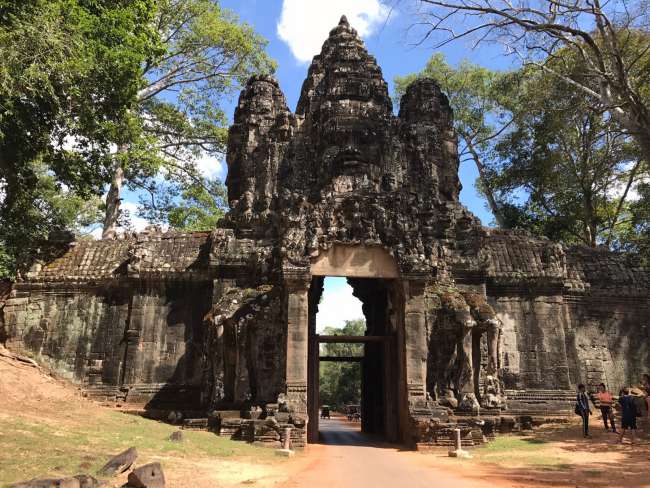
گزارش سفر کامبوج
